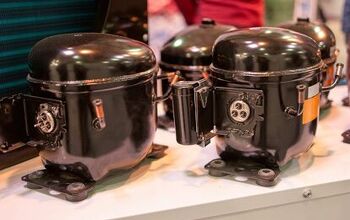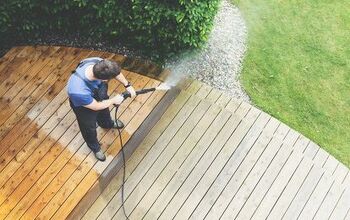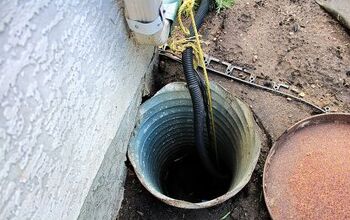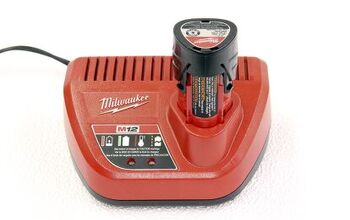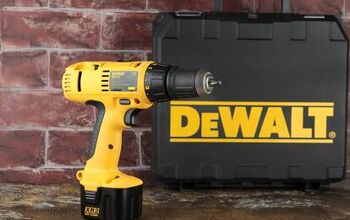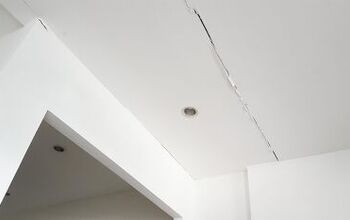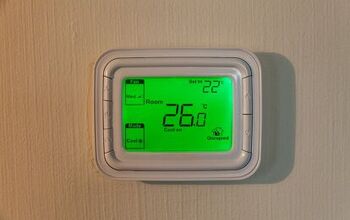Lawn Mower Backfires When Shutting Off? (We Have A Fix!)

Loud and unruly noises when shutting down your lawn mower engine is not normal. Bangs or pops as your engine quits running are an indication that something is amiss with the engine. The cause can be a mechanical problem or incorrect operating procedure. It is important to learn and remedy the cause of your lawnmower engine backfires.
If your lawnmower makes loud bangs or pops on shutdown, afterfire may be the problem rather than a backfire. Backfires typically describe a bang or explosion while the engine is running or as it is shutting down. Afterfire happens after the engine has stopped. Neither is harmful or dangerous but do indicate something may be wrong.
Diagnosing and remedying both backfire and afterfire is relatively easy on most lawnmower engines. Following a few tips and tricks can get your lawnmower running smoothly without annoying bangs and pops.
Do You Need a Mower Repair Service?
Get free, zero-commitment quotes from pro contractors near you.

Understanding the Problem – Backfires in Small Engines
In most cases, the cause of a small engine backfire is related to the rapid deceleration of the engine. Several factors can contribute to the problem.
- Rapidly lowering the engine speed after running at top speed. Jerking the throttle back suddenly from high speed to low speed can cause the mixture in the carburetor to be too rich. The unburned gas can ignite in the cylinder and a backfire through the carburetor can occur. If the gas passes through the cylinder unburned, an afterfire in the hot exhaust pipe or muffler can happen.
- Using blended gasoline with higher levels of alcohol may cause your engine to backfire or to afterfire. Alcohol behaves differently in small engines at different ratios when blended with gas. Always follow the manufacturer’s recommendations when using alcohol blended gasoline.
- Carburetor adjustment can be a cause of backfire or afterfire. If the carburetor settings are too lean, backfires may result. If the carburetor is adjustable, follow the directions in the user manual to reset the carburetor to the proper adjustments.
- The design and construction of some small engine mufflers can induce backfires. Short of replacing the muffler with a new unit or a different muffler style, you can’t do much to prevent this type of backfire.
- High operating temperatures in your small engine can contribute to backfires. Make sure that the cooling fins on your small engine are clean and free of dirt and debris. Check under the cowling for any built-up grass. Air must be free to circulate around the engine at all times.
- Some carburetors can backfire due to design issues. If the small passages inside the carburetor are not properly sized or become clogged, backfires may result. Unfortunately, many carburetors found on small engines are not repairable and you must replace the carburetor if this condition exists.
Even if your small gasoline engine on your lawnmower is perfectly tuned and you are using the right gasoline, backfires may still occur. Unless the problem becomes, recurrent backfiring is not a big issue. It shouldn’t damage your small engine and it isn’t dangerous.
On the Other End – Afterfiring in your Small Engine
Aftefiring usually occurs after the engine is shut off and has stopped running. Many small engines are prone to this problem and some manufacturers apply a solution by including an afterfiring solenoid to prevent these occurrences. Understanding the causes of afterfiring gives some ideas on how to prevent this annoying situation.
- On engines equipped with a separate shot down switch, activating the shut down while the engine runs at full speed can cause an afterfire. In this situation, the engine continues to pump gas as if the engine were still firing, which causes a fuel-rich condition. Never turn off the engine with the throttle at full speed. Throttle the engine down to an idle speed before hitting the shutdown switch.
- Using alcohol blended gasoline can lead to afterfires. Alcohol ignites easier than gasoline, and any unburned fuel may ignite from the engine’s heat alone. Always use the manufacturer’s recommended fuel in your small engine.
- Some small engine manufacturers offer re-designed muffler and exhaust designs that can mitigate the problems with afterfires.
- If your small engine has an anti-afterfire solenoid, ensure that the solenoid is operating. If the solenoid seems to work properly, make sure you follow the shutdown directions in the user manual. A few small engines equipped with anti-afterfire solenoids have quite different shutdown routines.
Afterfire and backfire are remarkably similar in their causes and their remedies. Often, it may be hard to distinguish one from the other. Fortunately, many of the same solutions work for both backfire and afterfire.
Backfires when Starting – Not a Good Sign
Lawnmower engines should not backfire when you try to start the engine. Backfires especially backfires through the carburetor as you start a small engine, indicate a bigger problem. Most often, the problem is a timing issue.
The single largest cause of timing issues in lawnmower engines is a damaged or broken flywheel. This type of damage can occur from running over a large object with the lawnmower or simply due to age. Be careful if your Briggs and Stratton backfires through carburetor.
Is the Flywheel Broken?
A small engine with a broken flywheel probably won’t start at all. Most of the time, you cannot budge the engine with the starter rope. The broken parts of the flywheel usually lodge in the engine’s internal parts and prevent the movement of the crankshaft and pistons.
A flywheel that is missing teeth may still turn but probably won’t run well, if at all. The missing teeth can throw the timing of the engine off enough to prevent the engine from starting. Even if it starts, the operation will be rough and erratic.
The only solution to this problem is to have the small engine rebuilt and the flywheel replaced. A reputable small-engine mechanic can do this job at a reasonable cost. Some homeowners may be able to affect this repair but, be advised it is challenging and messy.
Preventing Backfires and Afterfires
Many backfires and afterfires are preventable. In most cases, a bit of maintenance and following proper operating procedures will reduce or eliminate most backfires and afterfires. Here are some tricks and tips to keep your lawnmower running smoothly all season.
Follow the Manufacturer’s Recommendations
Every small engine comes with a user manual. The manufacturer includes in the manual a schedule of recommended maintenance for your lawnmower and engine. To ensure the longest life possible and the best operation of your lawnmower, you should follow this maintenance schedule
Learn the Proper Operation Techniques
The user manual supplied by the manufacturer with your lawnmower also has guidelines for the operation and use of your lawnmower and small engine. Following these guidelines will give the best performance and easiest operation of your small engine. Learn the proper techniques of operating your lawnmower and follow them with each use.
Don’t Abuse your Lawnmower
Lawnmowers are for cutting grass. Using your lawnmower to cut extremely tall or large weeds, brush, or fallen limbs and twigs can damage the blade and possibly the engine. Before each use, walk the area to be mowed and pick up anything that might damage your lawnmower.
Keep it Clean – Reduce Heat, Wear, and Tear
One of the biggest enemies of small engines is overheating. Small lawnmower engines are air-cooled and depend on air circulation around the engine to prevent overheating. Keeping the engine and lawnmower clean is the easiest way to prevent overheating.
Make sure that there is no dirt or debris built up between the cooling fins on the engine. Grass can lodge under the cowling or pile up against the engine on the lawnmower deck. All these conditions can cause a small engine to run at excessive temperatures. These debris build-ups can cause backfiring, premature wear, and even engine failure in some extreme cases.
Never use a water hose to clean a hot small engine. The cold water may cause the engine block to crack or warp. Wait until the engine is cool to the touch. Even then, avoid spraying water into the engine. Heavy water sprays can damage the electronics in the ignition systems.
Keep the Air Filter Clean
Surprisingly, many problems with small engines are traceable back to a dirty air filter. If the air filter is clogged, the engine can’t get enough air to operate properly. Old or improper air cleaners can allow dust and debris to enter the engine, causing premature wear and failure.
Many professional landscapers recommend changing or cleaning the air filter on your small engine each time you fill the lawnmower with gasoline. If your lawnmower uses disposable paper filter elements, check with the manufacturer for a replacement foam-style filter that you can clean many times before replacement.
Do You Need a Mower Repair Service?
Get free, zero-commitment quotes from pro contractors near you.

Backfiring, Afterfiring, and Small Engine Operations
The occasional backfire or afterfire is normal with most small lawnmower engines. If the backfire or afterfire problem becomes constant, you should take note and discover the cause. The most important thing you can do for your small engine is to adopt a regular maintenance schedule and use the engine as the manufacturer intended.
Related Articles

Dennis is a retired firefighter with an extensive background in construction, home improvement, and remodeling. He worked in the trades part-time while serving as an active firefighter. On his retirement, he started a remodeling and home repair business, which he ran for several years.
More by Dennis Howard










